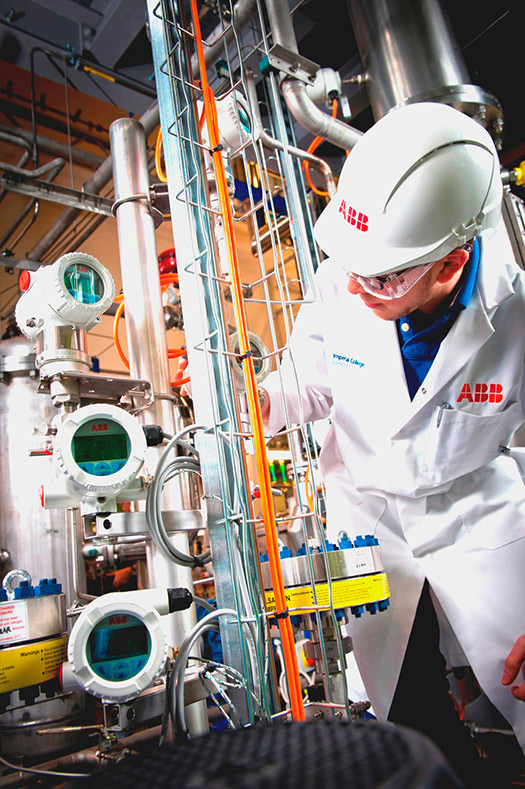January 2024, Vol. 251, No. 1
Tech Notes
ABB, Imperial College Extend Carbon Capture Agreement
Special to P&GJ
A dedicated carbon capture pilot plant will continue to train the net-zero workforce — as well as engineers and scientists of the future — following ABB and Imperial College London signing a 10-year partnership. Globally, the plant is the only one of its kind within an academic institution.
With the agreement, ABB aims to equip students with the skills needed to run tomorrow’s industrial processes, by demonstrating how the latest technology can help to optimize plant performance and safely manage emergency situations in real-life applications.
The collaboration between ABB and Imperial College gives the university access to some of the most advanced control and instrumentation technology available from any manufacturer.
“Extending the partnership with Imperial College allows us to offer students practical training to prepare them for a career in industry,” said Simon Wynne, head of Energy Industries, ABB UK & Ireland.
The plant, which is spread over four floors, uses ABB Ability System 800xA for distributed process control and over 250 instruments for measuring temperature, pressure, carbon dioxide and flow. The system automatically controls and coordinates all aspects of the plant process, which then appear on a control room monitor.
“During my time in the carbon capture pilot plant, I have actively participated in the operation of the process, gaining a deeper understanding of the development and application of the technology,” said Yiheng Shao, fourth year undergraduate student at Imperial College London. “This experience has also bolstered my confidence in the role of carbon capture in achieving net-zero goals.”
To enable the commercial CCS market to scale, ABB is deploying technology solutions to lower the capital and operational investment costs and de-risk integration into existing and new operations.
In March 2023, ABB joined forces with London-based Pace CCS to make the capture, transportation and storage of industrial carbon dioxide emissions more accessible. The key to this is using digital twin technology to provide a virtual replica of a real process, to test scenarios and deliver proof of concept.
Earlier this year, the UK Government outlined its Powering Up Britain policy. This series of net-zero pledges — including £20 billion in funding to unlock private investment and jobs in CCS — aims to deliver an energy system with cleaner, more affordable energy sources.
More than 4,500 students have had hands-on experience of ABB’s technology solutions at the plant since it opened in 2012 at Imperial College, which is one of the world’s top ten universities1, with a reputation for excellence in science and engineering.






Comments